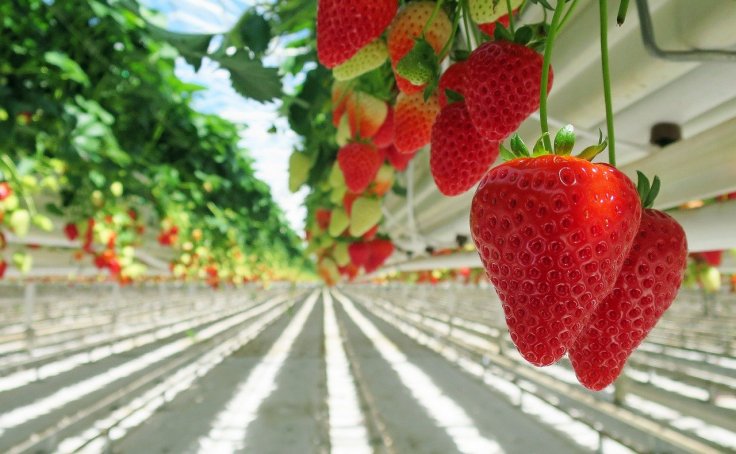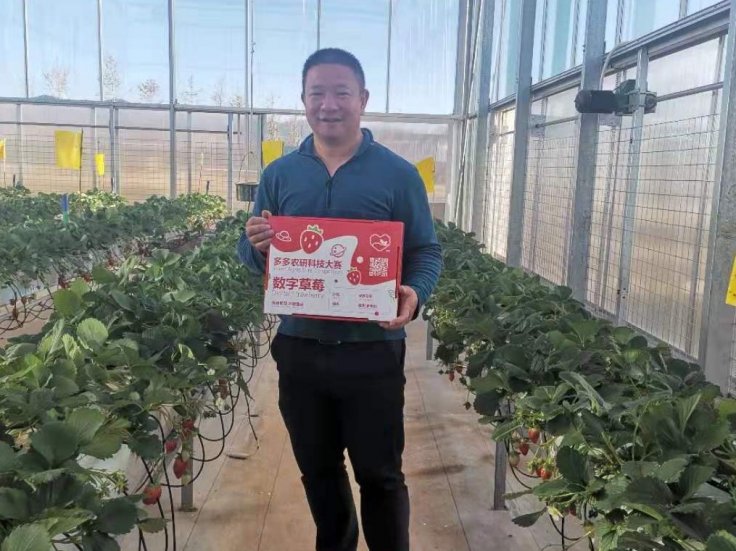Artificial Intelligence is now a dominant technology across industries. Agriculture isn't an exception. By using machine learning algorithms, the AI model can yield better results in the harvest. But despite adopting technologies, many farmers still prefer conventional ways to grow their crops as they believe AI isn't the answer.
To find out, Pinduoduo, an agricultural innovation platform, China Agricultural University with United Nations' Food and Agriculture Organization as a technical adviser, organized a four-month competition between four AI teams and four experienced farmers in July. The result was astonishing. In the strawberry farming competition that concluded recently the AI teams not only had better yield but also had a better return on investment.

Smart Farming
From a data science perspective, AI was supposed to be the obvious winner. By using data analytics — harvests in previous years, precise use of water and fertilizers — an AI model can help in better yields. In the competition, it was no different. While traditional farmers had to depend on years of experience and manual tasks, the AI teams managed better results with intelligent sensors, data analysis and automation.
The results heavily favored AI teams who could produce 6.86 kilograms of strawberries while the traditional farmers had only 2.32kg to show. As for the return on investment, AI teams outperformed traditional farmers by 75.5 percent.
"In agriculture, traditional farmers distrust data scientists, thinking they are flashy yet useless. Data scientists also look down on farmers, thinking they are too old-fashioned. AI cannot live without human beings, so we are looking for a way to combine traditional farming and smart agriculture," Cheng Biao, leader of the winning AI team Zhi Duo Mei that had shown a 60-percent increase in the output, told Pandaily.

Technological Reforms in Agriculture
With China being the leader in AI, the country wants to push technologies in farming for better yield. Pinduoduo, China's largest agricultural innovation platform, is helping the country digitize agricultural resources that would improve productivity. Like any other industry, the company is moving the entire chain — from production to transportation and sales — to digitalization.
Pinduoduo believes introducing AI and precision farming technology can reduce waste and improve productivity while also decreasing the mismatch in demand and supply. The farmers will also be able to expand their market size by using Pinduoduo's e-Commerce platform. The company is also working with Singapore A*Star research agency. Together, they are developing low-cost portable test kits that will help in detecting contaminants like pesticides.
However, as for smart farming, it is going to inevitable in the face of climate change. With the change in weather patterns and frequent storms, many countries that depend on agriculture have had poor harvests, leading to food shortages and skyrocketing prices of grains.
According to He Dongjian, an agricultural expert, smart farming will help ensure food security as any novice can grow crops using technology. What he calls a "smart plug-in" will allow inexperienced farmers to grow crops through "one-click planting", reducing the dependence on the shrinking farming labor force.
It was evident during the competition. While skilled farmers had to rely on their experience, the AI teams only tweaked their algorithms to adjust watering and fertilizing their strawberry plots. The rest of it was completely automated with no human intervention needed. "It is an irreversible trend of fewer and fewer people engaged in agriculture. In 10 years, there will be unmanned farmlands," said He, who is a professor of agriculture in China.









